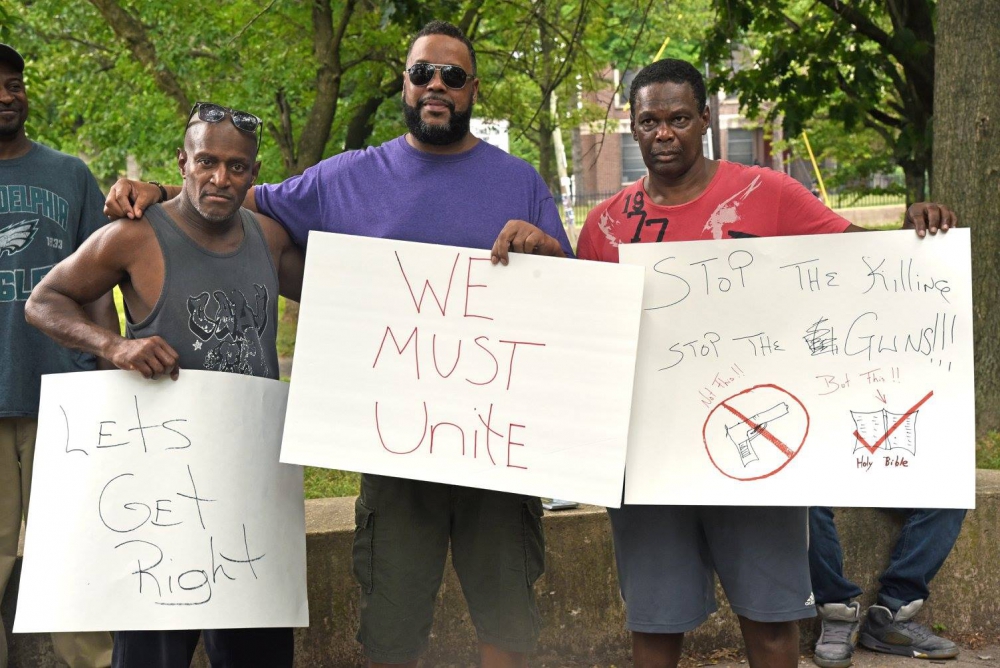I’ve been struggling to write over the last week. There are so many important things being said, so many important voices and issues. At the same times, there is so much darkness, so much frustration. I simply didn’t know amidst all the noise and takes and social media, where this blog fit in. But in the midst of all of this, I’ve decided this: I want to say thank you. Thank you to the people in Camden who have reminded me that while the structural issues facing struggling urban communities may be overwhelming, there is always space for compassion.
To be honest, I’ve found the last week overwhelming, so I can only imagine how those who deal with issues of race and policing on a day-to-day basis feel. There are so many important questions (and articles about them). Of course, I’ve seen the videos. I’ve been reading research about the potential of racial bias in policing, articles that attempt to contextualize individual shootings by analyzing wider national data, I’ve even gone one-by-one through each of the Washington Post’s database of police shootings of unarmed individuals. And, like many of you, I’ve struggled to discuss this with friends without becoming angry and I’ve cringed as I’ve seen people I know and love say things that will be impossible to forget. Throughout it all, I’ve wrestled with the overwhelming nature of the problem. To the extent that there’s an intellectual battle going on here, and I’m cribbing notes a little bit from Ta-Nehisi Coates here, it’s between those that see policing as the problem, and those that see wider racial policies and forces (segregation, discrimination in hiring, or, as Coates puts it, plunder) as the primary culprit, and the reason policing can be so problematic.
Walking around Camden while wrestling with ideas like plunder and discrimination is a harrowing activity — parts of the city are public testimonies to those histories. And that’s why I want to say thank you. Over the past couple of days, it’s been my Camden friends that have helped me remember that the community here is more than a historical artifact of injustice — it’s a group of caring people. With so many struggles here, the local community still takes the time to reach out to those throughout the country and the world who need compassion and help.
I’m thinking of my local Catholic parish, where the congregation has the compassion to raise money for a sister parish in Africa.
I’m thinking of some of my favorite activists, who gathered in Farnham Park over the weekend to raise their voices in unity with a national protest over the way policing affects people of color.
I’m thinking of the Camden youth football team that raised money for those struggling with the Flint Water Crisis, driving bottles of water to Flint.
It would be easy for Camden residents to say, we have so many of these struggles here at home that we don’t have time for these struggles. Just a few weeks ago, April Saul wrote about Quinzelle Bethea’s excessive force lawsuit and his arrest while walking to his grandmothers house — a story that hit me hard because I’ve met Quinzelle a few times. At the same time as young Camden football players were raising money to bring water bottles to Flint, those same students cannot drink the water in their own schools because of contamination. These types of struggles need to be addressed, and as they pile up along longer campaigns to return democratic elections to the Board of Education, or the drumbeat for Community Benefits Agreements, the result can be overwhelming.
That’s why it’s so humbling to see folks in Camden showing such compassion for others around the country and the world. It’s a reminder that the issues faced here in this city are serious, but that they need not define each minute and each action. It’s a basis for shared solidarity and shared humanity.
I started this blog because the people in Camden (and before that, in New Orleans) have so much wisdom, so much compassion, and so much to teach me. And I couldn’t be more blessed in the ways they’ve shared that with me this week. Thank you.
